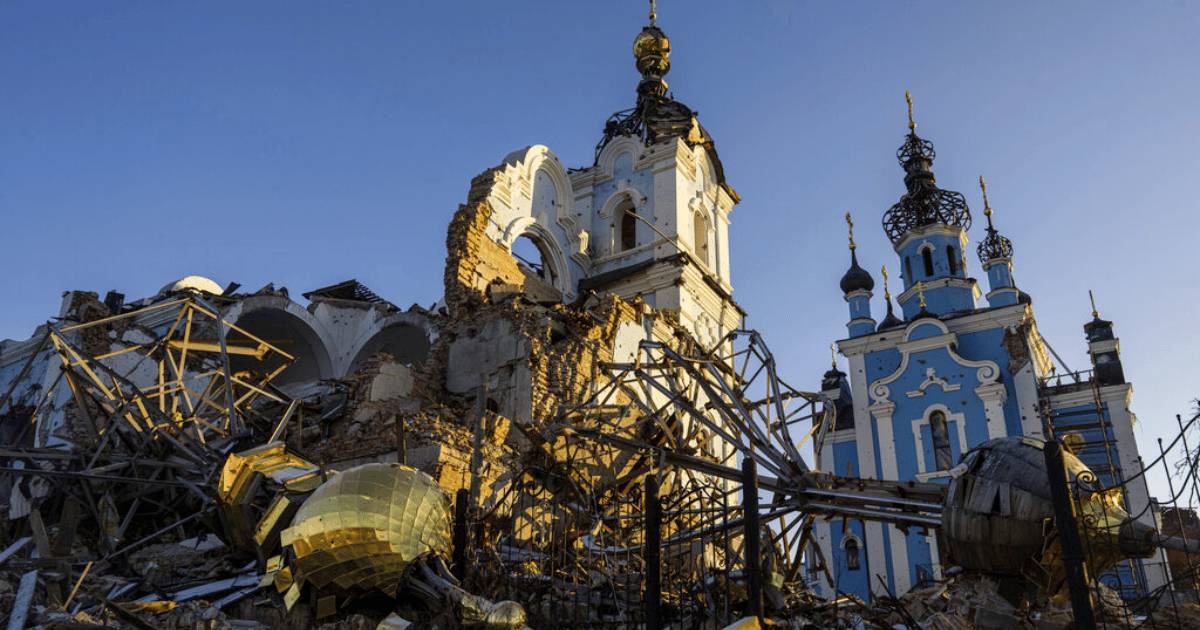- The Bagel
- Posts
- An Update on Russia’s Invasion of Ukraine
An Update on Russia’s Invasion of Ukraine
U.N. Human Rights chief Volker Turk delivered a powerful update on Russia’s invasion of Ukraine while addressing the U.N. Human Rights Council in Geneva. Let’s go over what he said and the latest in Ukraine.

United Nations
“The Russian Federation's invasion of Ukraine has thrown us back to an archaic era. An era when a neighboring country’s territory could be attacked and taken, at will, as one’s own. When the identity and history of communities could be denied, and reality rewritten.”
Those were the opening words of U.N. High Commissioner for Human Rights Volker Turk (pictured above) as he addressed delegates at the 52nd session of the Human Rights Council on March 31.
During his speech, Turk described Ukraine as a nation “struggling to survive” in the face of a Russian onslaught, and he lamented the reignition of the type of ancient, tribalistic thinking that the U.N. Charter was designed to end.
Turk denounced the “shockingly routine” violations of human rights and international law that’s been documented during the 13 months of war, and the devastating impacts the war has had on civilians.
“People across [Ukraine] face massive suffering and loss, deprivation, displacement, and destruction. And the continuing worldwide effects of this war – including on countries without any kind of involvement – are profound.”
According to Turk’s office, over 8,400 civilians have died in Russia’s war, while another 14,000 have been wounded, with most of the casualties stemming from “Russian forces’ use of wide-impact explosive weaponry in residential neighborhoods.”

UNDP Ukraine
In occupied areas of Ukraine, Turk’s office has documented “numerous summary executions and targeted attacks on civilians” by Russian forces and affiliated groups, including the infamous Wagner Group, and 621 cases of forced disappearances and arbitrary detention.
Turk’s office also interviewed 89 civilians released from Russian detention, finding 91% said they were tortured or “ill-treated,” including “various forms of sexual violence.”
Most of the 109 documented cases of sexual violence by Russian personnel happened in detention centers, though other acts, including rape, were perpetrated in Russian-controlled territory. Three of the rape victims were under 18.
Turk’s office also documented 91 cases of forced disappearances and arbitrary detention by Ukrainian forces since the start of the war, with around half of the 73 victims that were interviewed reporting instances of torture. The office has also documented cases of summary executions by Ukrainian forces.
Of the 24 cases of sexual violence by Ukrainian personnel, Turk said most consisted of threats of violence during detention, as well as forced public strippings.
Turk’s office has also documented cases of Ukrainian civilians being transferred to Russian territory or to the country itself, which he says may constitute a violation of the Geneva Convention.
The latest in Ukraine:
A new report by the Institute for the Study of War (ISW) found Russia is engaging in religious repressions throughout occupied Ukraine, including efforts to “weaponize religion in an effort to discredit Ukraine in the international arena.”

AP
The report found evidence of at least 76 acts of religious persecution by Russia in occupied areas of Ukraine, including the murder or detention of at least 29 religious leaders, the forced closure, nationalization, or conversion of 26 places of worship, and the looting, desecration, or deliberate destruction of 13 others.
The ISW believes Russia may use the upcoming Orthodox Easter holiday on April 16 to delay Ukrainian counterforces by calling for a ceasefire out of respect for the religious holiday, “despite the fact that Russia has shown no such respect for religion in areas its forces occupy.”
It also argues the religious persecutions are likely part of an ongoing “cultural genocide and ethnic cleansing” by Russia, with the goal of “extirpating the idea of an independent Ukrainian nationality or Ukrainian Orthodox Church.”
No end in sight:
The end of Russia’s invasion doesn’t seem to be near. If you don’t want to take my word for it, the Council on Foreign Relations (CFR) recently hosted a discussion with experts you can watch or read (the video is about an hour long), and the consensus was fairly clear: some ideas are on the table and ceasefires may be called, but no one really knows.
One thing we have to remember: Ukraine is the victim here. This war isn’t between two sides engaged in a conflict, it’s the aggressive act of one nation bent on taking territory it wants solely because it wants it.
As Alina Polyakova, president and CEO of the Center for European Policy Analysis, said during the CFR discussion, we need to be “very precise” with how we describe the invasion.
“[T]he title of this event—you know, ‘How Does the War in Ukraine End?’—doesn’t actually accurately reflect what is happening on the ground,” Polyakova said. “Because what’s happening on the ground is a Russian war against Ukraine, which is very much a victim that did absolutely nothing to be embroiled in this conflict. So, I think we do need to acknowledge the aggressor here. This is not a war between two willing parties over a dispute of some kind.”
Read this post on Medium here.